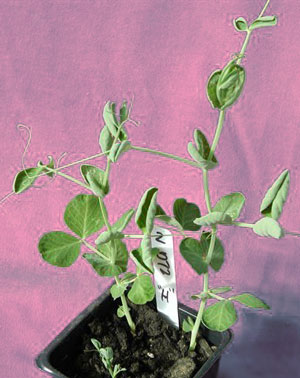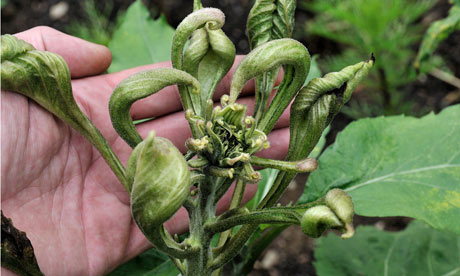 |
| This pea plant shows the cupped leaves that indicate the soil contains damaging levels of a potent herbicide. |
Last fall, our report on manure, hay and compost contaminated with Milestone herbicide (aka aminopyralid), made by Dow AgroSciences) told of 2008’s tragic summer in the United Kingdom, where thousands of gardeners lost their tomatoes, beans and other sensitive crops to manure and hay laced with this potent, highly persistent herbicide. This year the problem has hit home, with U.S. gardeners, organic farmers and commercial growers reporting damaged or lost tomato crops from Milestone contamination. (Aminopyralid is also sold under the brand name of Forefront.)
Why now? “We had the perfect storm to set up the situation,” says Dr. Jeanine Davis, associate professor of horticulture at North Carolina State University and author of several recent extension service advisories about Milestone’s persistent toxicity.
The drought caused animal owners to buy hay trucked in from other areas, and at the same time many people created new vegetable gardens and bought contaminated compost, or hay to use as mulch.”
Davis is now receiving notices daily from growers and extension agents across the country who are seeing vegetables damaged by manure, hay or compost contaminated with Milestone. Tomatoes are highly sensitive; symptoms including curled, cupped leaves and wilting new growth are often misdiagnosed as a virus or disease problem. Continue reading →


